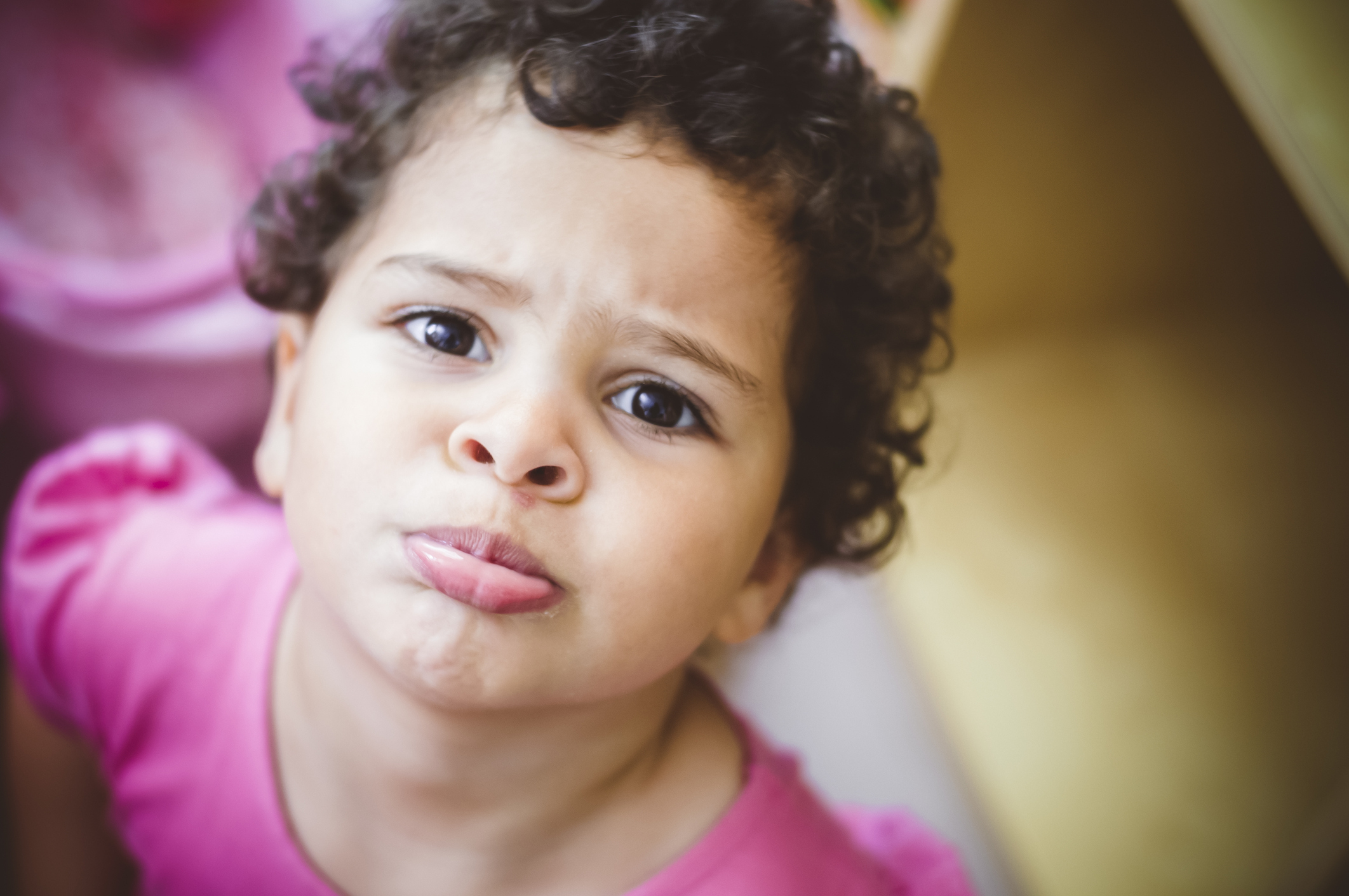
So, you've found yourself in a bit of a sticky situation with your toddler dropping some not-so-pleasant words. Don't worry, you're definitely not alone! It's pretty common for little ones to pick up words that we'd rather they didn't. Toddlers are naturally curious and often mimic what they hear around them, even if they don't fully understand the meaning of the words they're saying.
As a parent it's important to approach this phase with patience and understanding. Claire Lerner, MSW, LCSW, a child development specialist — and the expert that leads our toddler behavior class — shares just what parents should do when they find themselves with a little one who has started using inappropriate or "bad" words.
Q: What are some reasons a toddler might begin to use “bad” language?
A: Most commonly, they hear others using it and they pick up on the fact that these words get a big reaction; and, like it or not, it is part of a toddler’s DNA to seek big reactions. It makes them feel powerful to get a rise out of others. It is not malicious or purposeful misbehavior. It is exploration.
Q: How should parents respond to their toddler when they hear them using a “bad” word?
A: I actually find that the most effective response, as counterintuitive as it may seem, is to ignore it completely. It’s the reaction they are looking for, and when they get it — even when it’s negative — it is reinforcing the behavior. When they get no reaction, they often give it up.
If that doesn’t work, I would engage and divert. For example: Let’s say your child says, “You’re a stupid poopy face.” In a very dramatic voice announce, “I have something really funny to tell you.” Or, share a fun fact about something they are interested in. It’s the engagement they are seeking, so if you just ignore them, they tend to redouble their efforts to get a reaction. So you want to pay attention to them, but in a way that shows them how they will get attention from you; and it’s not by using bad words.
Another option, if you are not comfortable with the previous approach, is to explain to your child that the words they are using are not acceptable. And, when they use them, you are not going to respond— or they will have to leave the room if they can’t stop. The problem is that most children 3 and under may not fully process this and be able to intentionally decide to change their behavior.
Also, keep in mind that for some kids, especially those that are wanting to be in charge, the more you tell them to stop doing something, the more motivated they are to keep doing it, in order to show you are not the boss of them.
The fact is: you can’t make them not say these words —only they control what comes out of their mouths. So, if ignoring the behavior doesn’t help, you need to find a way to implement the rule that “bad” words are not acceptable to say. To do this, you might tell your child that if they choose to keep saying the unacceptable words, they will need to go into another room because saying those words makes other people uncomfortable. Remember, in this case, you would need to follow through on having the child go in another room when saying “bad” words, in order for this tactic to have an impact.
Have a toddler that loves to test their limits? Struggling with meltdowns? To learn more tips about toddler behavior, check out our class, Toddler Behavior: Tantrums, Hitting, Power Struggles & More (led by Claire!). This class is a comprehensive guide to handling behavior in children ages 15 months to 5 years. You’ll learn easy-to-implement strategies that can help you navigate any tricky toddler behavior calmly & confidently.


